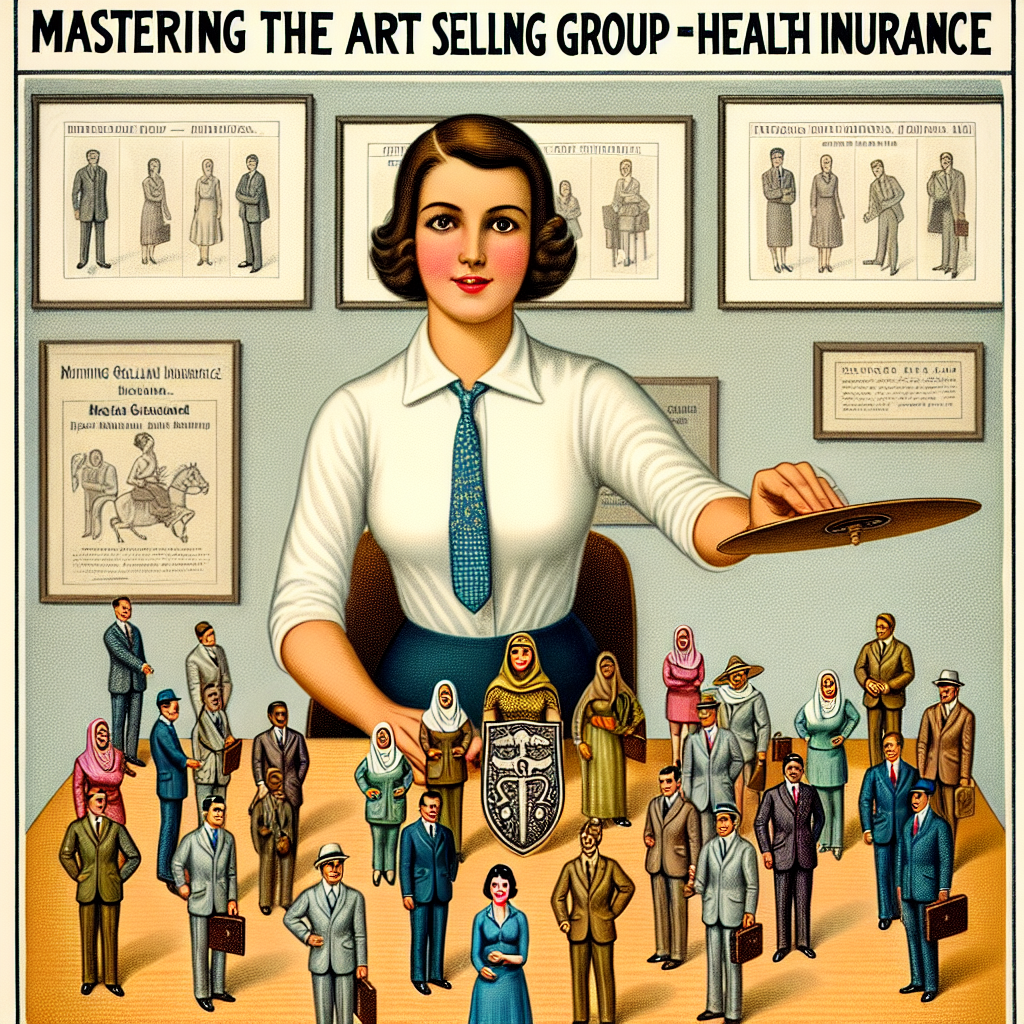Filed under Health Insurance on
Mastering the Art of Selling Group Health Insurance

In today’s fast-paced corporate environment, offering robust group health insurance is no longer just an attractive perk; it’s a crucial factor in attracting and retaining top-tier talent. Understanding the nuances of selling group health insurance is essential for brokers and agents striving to make an impact in the insurance field. By mastering this skill, you can provide value to businesses, employees, and achieve your professional goals. Let's explore how to effectively sell group health insurance, ensuring you stay ahead in this competitive landscape.
Understanding Group Health Insurance
Before diving into sales strategies, it's imperative to understand what group health insurance entails. Essentially, group health insurance is a policy purchased by employers to provide healthcare coverage to their employees. These plans are not only more affordable compared to individual policies, but they also offer broader coverage options, making them a win-win for both employers and employees.
Employers benefit through tax incentives and the ability to attract skilled employees, while employees receive extensive health coverage with reduced premiums. As a broker, comprehending these benefits allows you to tailor your approach when pitching to businesses.
Research and Prepare: The Cornerstone of Sales
A successful sales pitch begins with thorough preparation. Understanding your potential client’s industry, workforce demographics, and existing benefits can significantly enhance your pitch. Here’s how:
- Industry Analysis: Different industries have varied employee health needs. For instance, tech companies may focus on mental health benefits, while manufacturing firms might emphasize physical health coverage.
- Demographics Insight: Knowing the age, gender, and lifestyle of a company's workforce helps in proposing the most relevant health plans.
- Existing Benefits Evaluation: Reviewing a company's current benefits package allows you to highlight how your group health insurance can fill existing gaps.
Build Strong Relationships
In the world of selling group health insurance, relationships are everything. Building trust and credibility with potential clients can set you apart from competitors. Here are some strategies to forge strong connections:
- Authentic Engagement: Engage with prospective clients through genuine conversations. Listen to their concerns and answer queries with transparency.
- Networking: Attend industry conferences and seminars to meet potential clients and establish new connections.
- Educate, Don’t Sell: Offer insights and education on group health insurance, positioning yourself as a knowledgeable expert rather than a sales-focused individual.
Navigating Complex Policies
Group health insurance policies can be intricate, involving numerous terms and conditions. As an agent, deciphering these complexities for your clients is crucial. Here are ways to streamline this process:
- Break Down Jargon: Simplify technical terms and policy conditions into layman’s language to ensure clients understand what they are signing up for.
- Provide Detailed Comparisons: Prepare clear comparisons with spreadsheets or software tools that highlight the differences between available plans.
- Tailor Solutions: Customize plans to meet the unique needs of the company, proving that your offering can adapt to their requirements.
Highlight the Financial Benefits
Cost is often a primary consideration for businesses when purchasing group health insurance. Highlighting the financial benefits can significantly sway decision-makers in your favor:
- Tax Incentives: Explain the tax benefits that come with offering group health insurance, such as deductions and credits.
- Employee Retention: Illustrate how comprehensive health plans lead to lower turnover rates, saving on recruitment and training expenses.
- Bulk Discounts: Emphasize the cost savings of buying in bulk, as group plans are generally more cost-effective than individual plans.
Staying Updated on Industry Trends
The insurance industry is ever-evolving, impacted by policy changes and emerging health trends. Keeping informed can give you a competitive edge:
- Policy Changes: Stay abreast of new laws and regulations affecting healthcare to provide current information to your clients.
- Health Trends: Be aware of emerging health concerns, such as mental health, and incorporate relevant coverage in your plans.
- Technological Advances: Utilize the latest technology in insurance solutions, such as online portals or apps for easier management of plans.
Overcoming Objections
No sales process is without objections. Anticipate and prepare to address common concerns confidently and effectively:
- Budget Constraints: Offer flexible payment plans or scaled-down packages as stepping stones to full coverage plans.
- Complexity Concerns: Emphasize customer support and the resources available to assist with any issues that may arise.
- Alternative Options: Be ready to discuss how your offerings stack up against competitors, providing clear benefits and advantages.
Leverage Digital Marketing
In the modern digital landscape, a robust online presence is crucial for reaching a wider audience. Utilize digital marketing strategies to enhance your sales:
- SEO Optimization: Ensure your website and content are optimized for search engines, targeting keywords like “selling group health insurance” to drive traffic.
- Social Media Outreach: Engage with businesses on platforms like LinkedIn and Facebook to build your brand and attract potential clients.
- Email Campaigns: Create informative email series that educate clients on the benefits and updates of group health insurance.
Offer Post-Sale Support
Your relationship with clients shouldn't end after the sale. Providing excellent post-sale support ensures customer satisfaction and long-term partnerships:
- Regular Check-Ins: Schedule periodic meetings or calls to discuss the performance of the plan and any changes needed.
- Feedback Mechanisms: Implement systems for clients to provide feedback, allowing continuous improvement of your services.
- Problem Resolution: Address any issues promptly, showcasing your commitment to customer service.
Success Stories and Testimonials
Nothing speaks louder than success stories from satisfied clients. Gather testimonials and case studies to demonstrate your effectiveness:
- Share Client Successes: Detail how your insurance solutions have benefited past clients, highlighting specific improvements in their operations.
- Obtain Reviews: Encourage clients to review your services online, enhancing your credibility and attracting new business.
Mastering the art of selling group health insurance involves understanding the policy, building strategic relationships, anticipating objections, and leveraging technology to meet client needs effectively. By adopting a client-centric approach and staying informed about industry trends, you can position yourself as a trusted advisor and grow your business significantly in the group health insurance market.





